Capsule Endoscopy
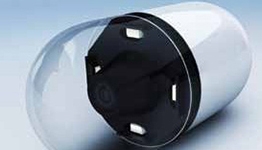
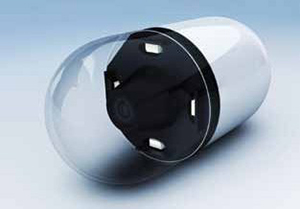
What is Capsule Endoscopy?
Capsule Endoscopy is also known as a pill-camera or wireless endoscopy.
Capsule Endoscopy is used mainly to pinpoint bleeding in hidden areas in the small bowel. It is more sensitive than many other techniques. Capsule endoscopy discovers a source of bleeding in approximately 60% – 70% of patients. It is also useful for tracking small bowel tumours and obscure abdominal pain.
Capsule Endoscopy uses a 10 – 27 mm capsule, which contains a tiny camera, batteries, light source and transmitter. After swallowing the capsule travels like a piece of food through the gastrointestinal system. It provides high-resolution images of the stomach and small intestines, taking two pictures every second for up to 11 hours, providing about 60,000 pictures in total.
Recording probes, taped on the abdomen, track the progress of the capsule. The images obtained by the capsule are transmitted to a data recorder worn in a harness around the waist.
Indications
- Obscure gastrointestinal bleeding. Capsule Endoscopy can help find the cause of gastrointestinal bleeding.
- Inflammatory bowel disease. Capsule Endoscopy may reveal areas of inflammation in the small intestine that can help your doctor diagnose Crohn’s disease and other inflammatory bowel disease.
- Cancer. Capsule Endoscopy can identify tumours in the small intestines that otherwise might be difficult to detect.
- Celiac disease. Some small studies suggest that Capsule Endoscopy can detect intestinal changes associated with celiac disease – an immune reaction to eating gluten – and can help detect complications of the condition.
- Polyps. People who have inherited polyposis syndrome that can cause polyps in the small intestines, such as Peutz-Jeghers syndrome, may occasionally have Capsule Endoscopy to screen for polyps.
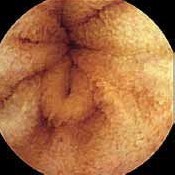

What Do I Need to Do to Prepare For the Capsule?
You should fast (no food or drinks) for 10 to 12 hours before undergoing Capsule Endoscopy. Diabetics should withhold their diabetic medication during the fasting period. If you take insulin, this should be discussed with your doctor.
A bowel preparation maybe required for Capsule Endoscopy; however, your doctor may suggest that only a fluid meal is taken the night before the procedure. No special diet is required but strongly coloured foods and iron tablets should be avoided for 24 hours before the examination.
What Happens During the Procedure?
On the day of the procedure, a harness, holding the data recorder, is worn for about 10 hours after the capsule is swallowed. Gentle activity is encouraged while wearing the harness as this will aid the progress of the capsule.
No fluid should be taken for 2 hours after the capsule is swallowed and solid food is not permitted to be eaten for 4 hours afterwards. Do not swallow chewing gum during the examination.
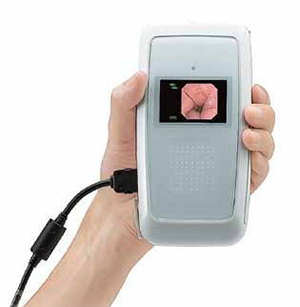
What Happens After the Procedure?
Eight hours after the capsule is swallowed, the patient returns to the doctor’s surgery to have the belt and leads removed. The information from the data recorder is downloaded onto a computer and the images are composed into a video to be examined by the doctor.
The capsule is single use only and does not need to be retrieved. The capsule passes naturally in a stool within 1-3 days. Most patients are not aware it has passed. The capsule doesn’t need to retrieved and can be safely flushed down the toilet.
Remember
- No fluid for 2 hours after swallowing the capsule.
- No solid food for 4 hours after swallowing the capsule.
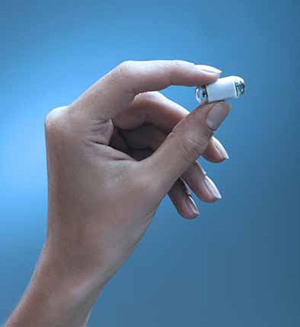
Are There Any Risks?
Capsule Endoscopy is a very safe procedure. Complications of Capsule Endoscopy are very infrequent.
The capsule has a gel coating which makes it easy to swallow. Abdominal pain or nausea after swallowing the capsule is extremely rare and should be reported immediately.
Approximately 1 in 100 patients retain the capsule in the bowel. This may occur if the bowel is narrowed or has some other unusual anatomy. Usually the capsule will eventually pass. On rare occasions it will need to be removed endoscopically or surgically. The obstructing lesion can be corrected at the same time. If bowel narrowing is suspected your doctor may suggest an initial trial with a dissolvable (Patency) capsule.
On the day of the test, approximately 1 in 10 patients may have a slow small bowel transit an the capsule may not be seen to reach the large bowel on the Capsule Endoscopy recording. An abdominal x-ray will then be arranged to check that the capsule has passed out of the bowel.
Patients wearing the harness and data recorder are advised to stay away from large radio transmitters (e.g. TV transmission towers) and advised not to visit airports and major shopping centres where the harness could trigger security screening equipment.
Who Can I Contact If I Have Any Questions?
If you have any questions or need advice please consult your doctor.
Important Reminder:
This information is intended only to provide general guidance. It does not provide definitive medical advice. It is very important that you consult about your specific condition.



